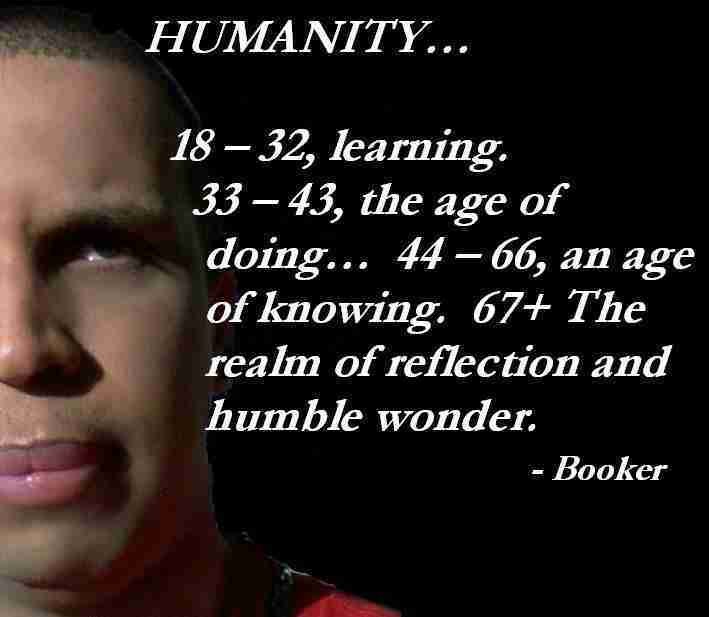 Much of my blog here and the points I am going to make will be easily identifiable if you believe you were raised wrong.
Much of my blog here and the points I am going to make will be easily identifiable if you believe you were raised wrong.
Believing that you were raised wrong, means that you are open to the fact of it and perhaps it is not to late to enact some corrective measures…
Others will read my article here, acknowledge these facts and immediately resign to denial of anything needing corrected and maintain being a dumbass.
Lack of Manners
They say, “manners maketh the man,” and it’s true. The power behind a please and thank you are enormous.
Entire marriages, friendships and relationships have dissolved because of one person never saying the magic words.
Potential relationships have been lost in the void due to lack of manners, and even psychologicalscience.org agree that “People Underestimate the Power of Saying ‘Thanks.’
A lack of manners is the first noticeable sign that someone wasn’t raised right as kids.
2 The World Is Your Trash Can
Another easy to spot sign that someone wasn’t raised right, is they litter.
The stats on littering are embarrassing, with 75% of people admitting they’ve littered in the past 5 years.
Resulting in the US spending almost $11 billion a year cleaning it up!
We’ve all seen those awfully raised kids toss litter out on the highway, and according to global littering statistics online…
it consists of 59% paper, 16% cans, 6% bottles, 6% plastic and 13% of other trash.
It takes zero effort to hang onto it until you find a trashcan.
3 Personal Hygiene Is Non-Existent
Body odor – check.
Bad breath – check.
Stained teeth – check.
Dirt under the nails – check.
Greasy, unwashed hair – check.
We all know people that have terrible personal hygiene… and regardless of how much chewing gum you offer them.
Or how many shower gels you give them for birthdays, they just don’t get the hint.
First impressions last, so if someone is breathing stale cigarette breath into your face or shaking your hand with unwashed, clammy hands…
Regardless of what a nice person they may be, they’ll always be deemed as someone that wasn’t raised right as kids.
4 You’re Lazy AF
There’s a video on YouTube called THE MYSTERY OF THE BASKET where a woman gets home from work and her boyfriend asks her what’s for dinner?
She’s upset and says she can’t continue doing everything. He lets her in on a secret and shows her the magic.
Dirty laundry he puts into a basket gets miraculously cleaned and ironed and trash he leaves on the coffee table mysteriously gets thrown away.
It was her doing all the work. Jokes aside, lazy people were not given responsibility when growing up and truly believe that things should be done for them.
If you’ve dated someone lazy, you’ll know that you end up being their housekeeper as opposed to their lover or partner.
Which leads us to our next point.
5 Ungrateful and Spoilt
A headline from chicagotribune.com read, “Treat your kids like royalty, and they’ll act the part.”
And by doing this, we do a massive disservice to our children. A professor of psychology at San Diego State University, Jean Twenge, believes there is a scary rise in narcissism among young people.
This inflated sense of self she attributes to the internet, celebrity culture, credit given too easily and parents.
Spoilt children are never satisfied with what they have, and they won’t let up until their parent’s give in to buy better, more or instantly.
These children are terrible losers, expect things right away, and are unable to be a helpful member of the household.
And the scary thing is, these children grow up to be adults that are terrible losers, expect things right away, and are unable to be a helpful member of the household.
6 Everything Is Replaceable
Toys, books, school equipment, pets and even people.
When children are not taught from young to take responsibility for their belongings, a small issue becomes a far greater one as they get older.
When parents continually replace things that a child has lost or broken, they teach them that everything is replaceable.
And sure, every kid and adult will lose or break something, but there is a process to fix or make amends.
If a child breaks a window with a ball, then he should pay for part of the repair and take an active interest when the repair team are working on fixing the broken glass.
He needs to understand that there are consequences for his actions.
When parents don’t let their child experience the consequences, then when they’re older, they’ll find everything replaceable, including people.
7 No Accountability
Kathy Caprino, who hosts the Finding Brave podcast, contributed to Forbes.com with their article, 4 Ways To Take Accountability For Your Actions (And Why So Many Don’t).
There she explains … “one thing I’ve seen precious few people, let alone professionals, do well is to accept full accountability for their actions and their words.
It’s something we’re not taught how to do in our childhoods, families, schools, or in our workplaces, but it’s an essential skill for our success and happiness.”
To raise a person who takes accountability is not easy, but that’s the job of the parents. And people who are unable to accept responsibility are usually exceptionally good at our next point.
8 Playing the Victim
Victim mentality means it’s never the victim’s fault. Everyone else is to blame, except themselves.
They’re unlucky, nobody understands them, and they’ve got the self-pity down to a fine art.
A lot of victim mentality comes from parents.
So, if parents are good at playing the blame game, chances are their kids will be too.
If parents like to throw pity parties, you guessed it, pity party for one happening soon.
And if parents always focus on the negative, that will rub off on children too.
And these traits are not easy to shake off.
They require a lot of self-reflection and discipline.
9 Disrespecting People
We all know that person who will be “nice” to you, but then treats the waiter like shit. Observing how people interact with anyone in the service industry, is a good benchmark to judge their character.
Not only is this sort of behavior a sure sign that their parents raised their kids wrong, but it’s also a red flag on the true nature of their personality.

10 The Conversation Always Returns to You
This scenario might sound familiar.
You’re telling someone about the amazing trip you took.
You haven’t even finished speaking, and already they’re telling you about a bigger and better trip that they took.
They swam further than you, they drank more than you, they got better bargains than you… it doesn’t matter what you did, they did it bigger and better.
And that, is because parents gave their children the floor to speak over adults, made their stories more important and cut their own conversations short to hear the same story they’ve heard a dozen times before.
11 The Shopping Cart
Never before have shopping carts found more fame then when someone retweeted an anonymous post from a website forum titled, The Shopping Cart Theory.
What does knowing if someone is a good person and a shopping cart have in common?
This is the theory loosely.
Do you return the shopping cart or not? Returning it is easy, straight-forward and takes a minute.
It’s a mere blip in your day. However, it’s just as easy to leave it and get on with your day.
You’re not going to be punished, it’s not illegal… so, what do you do?
Well, if you return the cart, you’re a good person.
And if not? I’ll let you decide.
12 You Think You’re Better Than Others
Let’s continue with the shopping cart.
What are your reasons for not returning the cart?
Do you believe it’s not your responsibility? Are you too good to return the cart? Are you lazy? Is that someone else’s job?
Whatever the reasoning behind it, you’ve placed yourself in a superior position. More superior to the person returning the shopping cart, for a start.
There is a medical term for those that think they’re better than others called Illusory superiority.
According to psycologywikia.org, “Illusory superiority is a cognitive bias that causes people to overestimate their positive qualities and abilities and to underestimate their negative qualities, relative to others.”
13 There Is Racial or Gender Bias in You
Nelson Mandela once powerfully stated, “No one is born hating another person because of the color of his skin, or his background, or his religion.
People must learn to hate, and if they can learn to hate, they can be taught to love, for love comes more naturally to the human heart than its opposite.”
And if you’re meeting someone who is racist or has gender issues, something in the way they were raised, was not right.
But as Madiba says, as we learn to hate, so we can learn to love.
14 You Display, “You Owe Me” Behavior
You know those people that do you a favor and you regret having asked for it. They’ll never let you forget that you owe them a favor.
Interesting to note, exploringyourmind.com adds that people who make these tallies of who has or hasn’t returned a favor, consider themselves victims.
The truth about favors, is that the person giving the favor should do it out of kindness and generosity.
And the pay back should be the feeling of contentment or happiness, that they did something good for someone else.
15 You Expect Things To Go Your Way, All the Time
This is a sign of toxic behavior, and these people were not raised right. That’s because parents have given in to their every whim.
What does that teach a child about real life? That when things don’t go their way, they can just stamp their feet, shout or cry.
And then Ta da, all will be good again.
That’s not real life and those children will go into life manipulating every situation until it goes their way.
Or when it doesn’t, their little kiddy tantrums will be full-blown adult tantrums, and there is nothing pretty about that.
 Much of my blog here and the points I am going to make will be easily identifiable if you believe you were raised wrong.
Much of my blog here and the points I am going to make will be easily identifiable if you believe you were raised wrong.
















